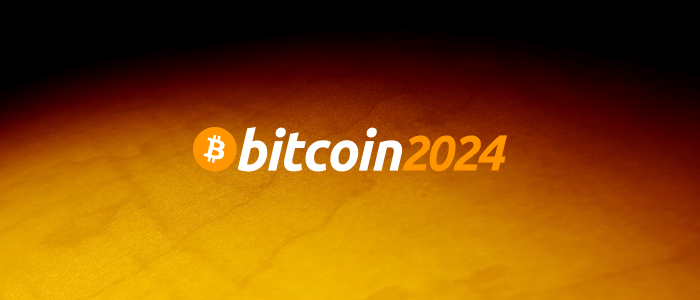Introduction
CoinFabrik was asked to audit the contracts for the 1inch’s MoneyMarket project. A set of contracts allows an owner to deploy money markets for different tokens. A money market for a token allows users to lend and borrow these tokens, respectively receiving or being charged an interest.
First we will provide a summary of our discoveries and then we will show the details of our findings.
Scope
The contracts audited are from the git repository. The audit is based on the commit 316f0769a4f85fcc678bfd0b02da1ff47870d160.
The audited contracts are:
BaseMarket.solDebtoken.solDebtokenDeployer.solFormula.solLentoken.solLentokenDeployer.solMoneyMarket.solMoneyMarketToken.sol- libs/
MovingValue.sol
Analyses
The following analyses were performed:
- Misuse of the different call methods
- Integer overflow errors
- Division by zero errors
- Outdated version of Solidity compiler
- Front running attacks
- Reentrancy attacks
- Misuse of block timestamps
- Softlock denial of service attacks
- Functions with excessive gas cost
- Missing or misused function qualifiers
- Needlessly complex code and contract interactions
- Poor or nonexistent error handling
- Failure to use a withdrawal pattern
- Insufficient validation of the input parameters
- Incorrect handling of cryptographic signatures
Findings and Fixes
| ID | Title | Severity | Status |
| CR-01 | Unrestricted Borrowing Through User Health Toggling | Critical | Not fixed |
| ME-01 | Reentrancies in Lentoken | Medium | Not fixed |
| MI-01 | Duplicated Code May Cause Inconsistent Liquidations | Minor | Not fixed |
| MI-02 | The 18 Decimals Assumption May Fail | Minor | Not fixed |
| MI-03 | Unchecked Token Remove Operations | Minor | Not fixed |
Severity Classification
Security risks are classified as follows:
- Critical: These are issues that we manage to exploit. They compromise the system seriously. They must be fixed immediately.
- Medium: These are potentially exploitable issues. Even though we did not manage to exploit them or their impact is not clear, they might represent a security risk in the near future. We suggest fixing them as soon as possible.
- Minor: These issues represent problems that are relatively small or difficult to take advantage of but can be exploited in combination with other issues. These kinds of issues do not block deployments in production environments. They should be taken into account and be fixed when possible.
- Enhancement: These kinds of findings do not represent a security risk. They are best practices that we suggest to implement.
This classification is summarized in the following table:
| SEVERITY | EXPLOITABLE | ROADBLOCK | TO BE FIXED |
| Critical | Yes | Yes | Immediately |
| Medium | In the near future | Yes | As soon as possible |
| Minor | Unlikely | No | Eventually |
| Enhancement | No | No | Eventually |
Issues Found by Severity
Critical Severity Issues
CR-01 Unrestricted Borrowing Through User Health Toggling
The function BaseMarket.isHealthy(), which is used to validate that a user has a healthy balance, can be controlled by an arbitrary user.
This function is used in MoneyMarket.borrow() and MoneyMarket.liquidate() to validate that the message sender is healthy before allowing him to borrow, or respectively liquidate an arbitrary account. It is also used (via the modifier MoneyMarketTomen.stayHealthy()) to validate the message sender of Lentoken.withdrawTo() will stay healthy after withdrawing tokens (and burning lenTokens) to an arbitrary account. It is similarly used by LenToken.borrow(), LenToken.flashBorrow(), LenToken.transfer() and LenToken.transferFrom().
Function isHealthy() can return user-controlled values via the contract’s external function MoneyMarket.toggleFlash().
| function toggleFlash(address account, bool entry) external override { require(_lentokenExists(ILentoken(msg.sender)) || _debtokenExists(IDebtoken(msg.sender)), “1MM: Market do not exist”); entry ? _flashCounter[account]++ : _flashCounter[account]–; } |
flashCounter[account]>0. Since the following function can be called by the user to increase _flashCounter[]
It follows that he can convert to health. So an arbitrary user can modify the value of isHealthy(account) for any account (and consequently that of stayHealthy(account))
Recommendation
Make the function toggleFlash() private.
Solution
Unresolved.
Medium Severity Issues
ME-01 Reentrancies in Lentoken
The functions _borrowTo(), repayFor(), depositFor() and flashBorrow() in the Lentoken contractare susceptible to reentrancy when calling token.safeTransfer() or token.transfer(). Notice that if the attacker controls the token contract, he can implement reentrancy attacks in the transfer() or safeTransfer() function respectively calling to_borrowTo(), repayFor(), depositFor(), flashBorrow() recursively. In the case of the first three functions, the attacker can use the reentrancy to skip the event emission, e.g., in _borrowTo() he would call mint(), safeTransfer() twice and emit only one Borrowed() event).
In the case of _flashBorrow() there’s one point of reentrancy in _borrow() and a second point of reentrancy in provideCollateralOrReturnBorrowed(). This second point of reentrancy is more dangerous, since it could allow the attacker to call toggleFlash() once (to increase _flashCounter[account] without decreasing it, hence setting the account to healthy and then launching the attacks described in CR-01).
Recommendation
Use reentrancy guard or place reentrancy checks.
Minor Severity Issues
MI-01 Duplicated Code May Cause Inconsistent Liquidations
Functions MoneyMarket.isHealty() and MoneyMarket().healthStatus() perform the same calculation of the account health status, returning a boolean that is false if the user debts are bigger than a percentage of the collateral. This calculation could be refactored so code is not duplicated.
A more dangerous problem is that both functions can return different results, Ex.: isHealty() will always return true if the _flashcounter[] array is not zero, indicating the account is healthy, while healthStatus() will ignore _flashcounter[] and can return zero, indicating the account is unhealthy, thus returning inconsistent results.
Recommendation
Eliminate one of the functions, or refactor the code so duplicate calculations are performed in a different shared function.
MI-02 The 18 Decimals Assumption May Fail
Throughout the contracts, it is assumed that IERC20(token).decimals() = 18. While this is true now, it may change in the future, breaking assumptions.
Recommendation
The number of decimals (and constants such as _ONE = 1e18) should be defined during construction when IERC20 is imported.
MI-03 Unchecked Token Remove Operations
The MoneyMarket.removeDebtoken() and MoneyMarket.removeLentoken() functions should check that the balance is zero before removing the tokens from the account. Currently, this is checked by the callers, but not the functions themselves.
Recommendation
This check can be refactored and moved into those functions so those operations are always checked.
Enhancements
EN-01 Division Before Multiplication in Lentoken._interest()
In the function _interest(debLiq, liq, _computedDebtInterest) of Lentoken.sol the following assignment is made.
x = x / liq * (_ONE – reserveRatio) / _ONE;
Note that the precision error would be reduced if division took place last as there is no chance of overflow.
EN-02 Uninitialized variable and no return statement in _totalDebt()
The internal function MoneyMarket._totalDebt() follows.
| function _totalDebt(address account) internal view override returns(uint256 totalDebt) { address[] memory debts = _userDebts[account].items.get(); for (uint i = 0; i < debts.length; i++) { IDebtoken debtoken = IDebtoken(debts[i]); totalDebt += debtoken.underlyingBalanceOf(account) * _getPrice(debtoken.token()); } } |
Note that the variable totalDebt is not initialized and there is no return statement. While the code still works, we recommend doing both for code readability and ease of maintenance.
EN-03 safeMath Library No Longer Required
The library safeMath is included in several contracts (e.g., DebToken) but it is no longer necessary while using solidity 0.8.0 or above. We recommend that you remove the inclusion to save gas. We further note that none of its functions are used.
EN-04 Miscellaneous
- Check that
_reserveRatio M<=1in LenMarket’s constructor. - In the contract
MoneyMarketTokencasting moneyMarket in the modifieronlyMoneyMarket()is unnecessary sincemoneyMarketalready is an address by construction:
| constructor(IMoneyMarket moneyMarket_, IERC20 token_) { moneyMarket = address(moneyMarket_); token = token_; } |
- The value
MAX_PERCENT - MIN_PERCENTis computed for each call ofFormula.getAPR(). Replace this by a constant to save gas. - The value
365e18 daysin the contractMovingValueshould be set as a constant. Also, either adding documentation or replacing it with365 days * 1e18would improve code readability.
Other Considerations
Missing Docstrings and References
The reviewed contracts and functions lack documentation. Documentation makes it easier to read the code and helps reviewers to understand its intention. Consider documenting functions using the Ethereum Natural Specification Format (NatSpec).
Centralization
The contracts BaseMarket.sol and MoneyMarket.sol allow the contract owner to change the formula, reserve ratio and price oracle. Users of the MoneyMarket contract need to trust the owner of the contracts because of this fact.
Conclusion
We found the contracts to be simple and straightforward. The code is not documented. We found a critical and a medium severity issue that require immediate fixing. We also found a few issues of lesser severity and proposed some enhancements that should be looked into.












